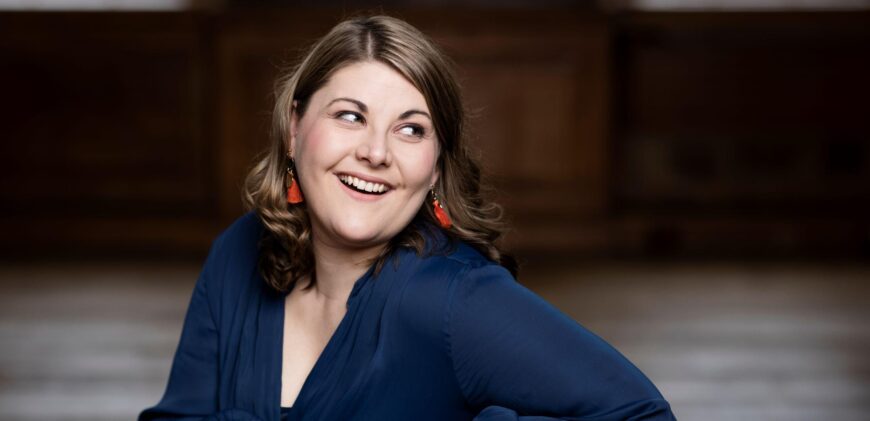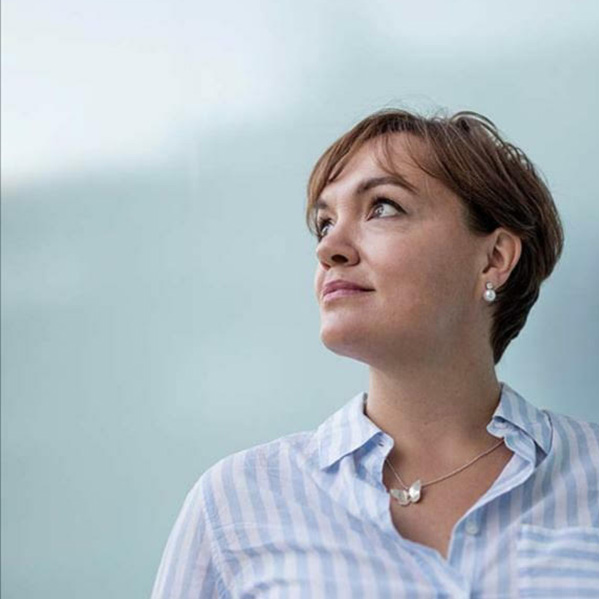
Ryedale Festival: Siân Dicker/Krystal Tunnicliffe, Looking West, All Saints’ Church, Hovingham, and Church of St Peter & St Paul, Pickering, July 30
THE penultimate day of Ryedale Festival was mainly concerned with voices.
The mid-morning song recital in Hovingham by the soprano Siân Dicker and the pianist Krystal Tunnicliffe was A Tale Of Two Cities, while the evening in Pickering featured the world premiere of a “concert-theatre” work, Looking West, with music by Julian Philips to a libretto by Rebecca Hurst.
The recital flitted back and forth between London and Paris, cities that clearly excited both performers as they explained early on. Dicker sang in both English and French, clearly enunciating and distinguishing her tone between the two, and Tunnicliffe stayed with her every step of the way. We relished their relish.
Poulenc’s enthusiasm verged on the frenetic, but had its moments of thoughtfulness, and he was touching too about the lovers carrying on while the preachers in Hyde Park were on their soap boxes.
We dipped into Butterworth’s song cycle, Love Blows As The Wind Blows, as we imagined the lover travelling up to Kew from Richmond, and enjoyed Madeleine Dring’s evocation, via Betjeman, of business girls enjoying a hot soak in Camden Town, one of five settings she made of the poet in the year before her death (1977).
We had Debussy evoking beautiful Parisiennes, balanced by Weill’s lament over the hidden depths of the Seine. Walton’s pomp and circumstance at the Lord Mayor’s table was countered by Errolyn Wallen’s pensive London’s Burning.

Finzi’s jovial setting of Hardy’s Rollicum-Rorum, plus an encore of Richard Rodney Bennett’s Let’s Go And Live In The Country (where the grass is not necessarily greener), rounded off a happy divertissement that was enhanced by four poems, well projected, including James Fenton’s In Paris With You. Dicker has a versatile charisma that should take her a very long way.
The 150th anniversary of the birth of Vaughan Williams was celebrated with the commission of Looking West by the Nova Music Trust and the Presteigne Festival. The latter will show the Welsh premiere but the world premiere was Ryedale’s honour.
The story exists on three historical levels, primarily the life of Saint Bega, an Irish princess who escaped marriage by crossing to St Bees and eventually settling in Northumbria as an anchorite, probably in the mid-9th century. Interest in her was revived by Melvyn Bragg’s novel Credo (1996), based on her life.
A second strand deals with the work of the Cumbrian artist Winifred Nicholson (1893-1981), who apparently left some memorable paintings of St Bees Head. The story is given contemporary relevance by a young pilgrim who makes his way across country starting from there, sharing his travails with the audience. “The spiritual enrichment we can find in the natural world” – a theme dear to the heart of Vaughan Williams – lies at the heart of Philips’ work.
In Nova Music Opera Ensemble’s production, directed by Sally Ripley, the actor Alexander Knox stole the show as the traveller, charting his day-to-day progress in various rambling outfits in an engaging, Jack-the-lad manner.
St Bega was cleanly, smoothly and spiritually sung by mezzo Rebecca Afonwy-Jones, clad in a purple habit tied with a rope, while soprano Rebecca Bottone, in a white smock, played the artist, not quite so clearly which was understandable given the high tessitura of many of her lines. Maddie Purefoy had a less clearly defined role speaking from the pulpit.
The orchestra of eight players played their hearts out under George Vass. Cello and double bass had important roles in some darker textures, but the upper strings came into their own near the end in something like folk style when our traveller danced in jubilation at having completed his journey.
At regular intervals we heard a tape of crashing waves streaked with the cries of seabirds. But the most affecting, intimate moment was a mezzo solo over cello and harp, especially when the instruments turned to pizzicato. The dramatic content was not as powerful as it might have been: most of the drama was left to the orchestra. But the influence of Vaughan Williams was undeniable.
Review by Martin Dreyer
